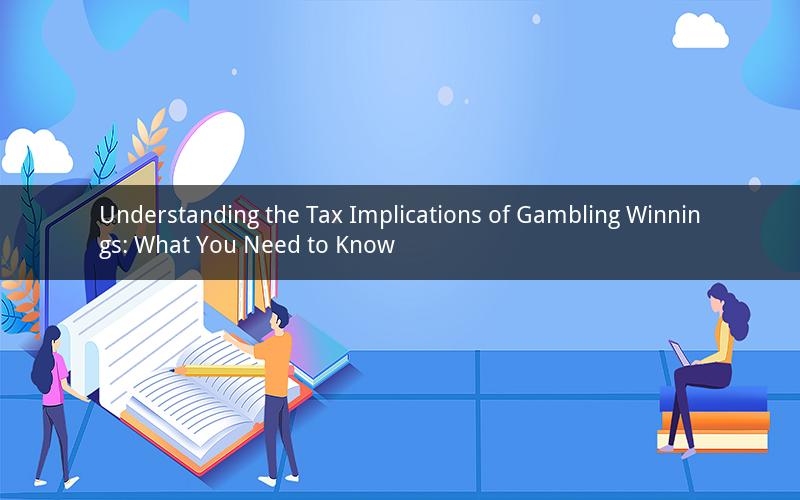
Introduction:
Gambling can be an exciting and potentially lucrative activity, but it's important to understand the tax implications associated with gambling winnings. Whether you're a casual player or a professional gambler, knowing what tax you get for gambling winnings is crucial for financial planning and compliance with tax laws. In this article, we will explore the tax regulations surrounding gambling winnings and provide valuable insights to help you navigate this complex area.
1. Taxation of Gambling Winnings in the United States
In the United States, gambling winnings are generally considered taxable income. This means that any money you win from gambling, whether it's from a casino, lottery, horse racing, or any other form of gambling, is subject to income tax. However, the specific tax rate and reporting requirements can vary depending on the amount of winnings and your overall tax situation.
2. Reporting Gambling Winnings
All gambling winnings, regardless of the amount, must be reported on your tax return. This is typically done using Form W-2G, which is issued by the gambling establishment or organization that paid you the winnings. If you win $600 or more in a single transaction, the payer is required to issue a Form W-2G. However, if you win less than $600 but receive a cash prize or other compensation, you are still responsible for reporting the winnings on your tax return.
3. Tax Rate on Gambling Winnings
The tax rate on gambling winnings in the United States is the same as the rate applied to your regular income. This means that if you are in the 22% tax bracket for your regular income, the same rate will apply to your gambling winnings. However, it's important to note that the tax rate on gambling winnings can be higher if they are considered to be part of a business or profession.
4. Withholding of Taxes on Gambling Winnings
When you win a substantial amount of money from gambling, the payer may be required to withhold a portion of the winnings as taxes. This is done to ensure that you have enough funds to pay the tax liability on your winnings. The withholding rate is typically 25% of the winnings, but it can be higher in certain situations.
5. Deducting Gambling Losses
While gambling winnings are taxable, you may also be able to deduct your gambling losses. This deduction is only available if you itemize deductions on your tax return. To deduct gambling losses, you must have documentation of your losses, such as receipts, tickets, or other proof of the expenses. Additionally, your losses can only be deducted up to the amount of your winnings.
6. Reporting and Filing Requirements
When reporting gambling winnings on your tax return, it's important to follow the proper procedures to ensure compliance with tax laws. If you win a large amount of money, you may need to report it on Form 8949 and Schedule D of your tax return. It's also essential to keep detailed records of your gambling activities, including winnings and losses, to support your deductions if necessary.
7. State Tax Implications
In addition to federal taxes, some states also tax gambling winnings. The tax rate and reporting requirements can vary significantly from one state to another. It's important to research the tax laws in your state to understand the specific requirements and rates that apply to gambling winnings.
8. Tax Planning for Gamblers
As a gambler, it's crucial to incorporate tax planning into your overall financial strategy. This includes budgeting for tax liabilities on your winnings, keeping detailed records of your gambling activities, and potentially seeking the advice of a tax professional. By proactively managing your tax obligations, you can ensure compliance with tax laws and minimize the financial impact of gambling winnings.
Conclusion:
Understanding what tax you get for gambling winnings is essential for both financial planning and compliance with tax laws. By being aware of the tax regulations, reporting requirements, and potential deductions, you can navigate the complex world of gambling taxes with confidence. Whether you're a casual player or a professional gambler, it's important to stay informed and take the necessary steps to manage your tax obligations effectively.
Questions and Answers:
1. Q: Are all gambling winnings subject to income tax?
A: Yes, all gambling winnings are generally considered taxable income in the United States.
2. Q: How do I report gambling winnings on my tax return?
A: You can report gambling winnings on Schedule C (Form 1040) or Schedule A (Form 1040), depending on whether you're reporting them as a business or as personal income.
3. Q: Can I deduct my gambling losses?
A: Yes, you can deduct your gambling losses, but only up to the amount of your winnings. You must also have proper documentation of your losses.
4. Q: Do I need to pay taxes on gambling winnings from online casinos?
A: Yes, the same tax rules apply to online gambling winnings as they do to winnings from traditional casinos or other gambling establishments.
5. Q: Can I deduct travel expenses related to gambling?
A: No, travel expenses related to gambling are generally not deductible. However, if you're gambling as a business or profession, certain expenses may be deductible, but you should consult a tax professional for guidance.